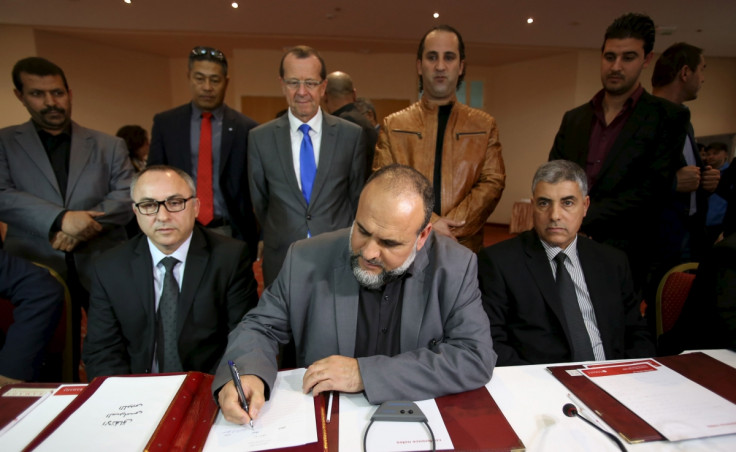UN Security Council endorses plan to form new united government in Libya

The United Nations (UN) Security Council has backed an agreement that Libya's political factions have signed to form a new national unity government. Britain, which drafted the resolution adopted by the UN, has called on the newly created Libyan presidency council to form a government within 30 days.
Libya's UN ambassador Ibrahim Dabbashi told the Associated Press he would like the UN to relax its arms embargo against Libya so that his country can defend itself against the Islamic State (Isis) and its supporters without the need for western-backed air strikes.
Dabbashi also called out the media for misreporting that he had called the resolution a step towards appealing for military help from western powers. He told Reuters: "No one is thinking about requesting foreign intervention at the moment. We are willing to fight ISIS ourselves." The westerns powers will need a formal request from Libya or a UN mandate to intervene militarily.
Libya has been in political chaos since former dictator Muammar Gaddafi was toppled and killed in a 2011 uprising. The new unity plan seeks to bring closer two rival political factions that have set up their parliaments in Beida and Tripoli.
Fayez Al Sarraj, of Tripoli-based General National Congress, will be the new prime minister. He will head a nine-member governing council and also the presidency council, which will consist of members from both political factions.
The Security Council said the new government should give women greater decision-making powers in the country's democracy. It also expressed grave concern about terror attacks carried out by the IS and the humanitarian crisis in the country.
According to Martin Kobler, special representative of the secretary general and head of the UN Support Mission in Libya, nearly 2.4 million people require immediate humanitarian assistance. An additional 435,000 are estimated to be internally displaced.
© Copyright IBTimes 2024. All rights reserved.





